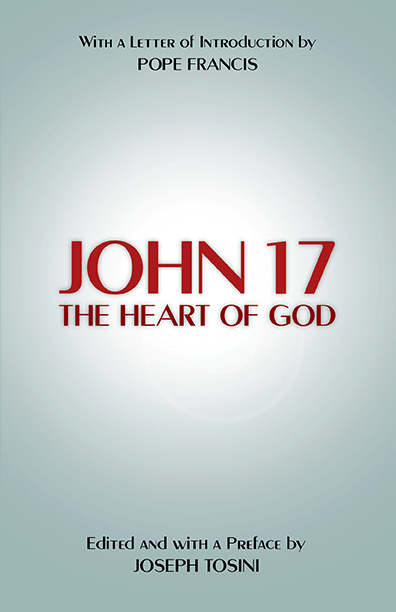Some 500 years since the dawn of the Reformation, a movement known as John 17 has sparked reconciliation between Christian communities. The movement took root in Phoenix four years ago when Catholics and Protestants came together to see how they could respond to Jesus’ prayer that His followers would “be one, as you Father, are in me and I in you … that they may be one as we are one” (Jn 17:20-26).
‘John 17: The Heart of God’
Editor: Joseph Tosini
Contributors include:
Bishop Thomas J. Olmsted;
Auxiliary Bishop Eduardo A. NevaresPublisher: New City Press
Length: 160 pages
Release Date: Nov. 26, 2018
Available at: Kino Library
A new book about the ecumenical movement, “John 17: The Heart of God,” includes chapters written by Bishop Thomas J. Olmsted and Auxiliary Bishop Eduardo A. Nevares of the Diocese of Phoenix. In an interview with The Catholic Sun, Bishop Nevares explained the reason he is involved with the movement.
“We are not looking for theological or philosophical differences,” Bishop Nevares said. “We are all aware that they still remain, but our first step in the ecumenical dialogue is getting to know each other and respect each other.”
They’re following the inspiration of Pope Francis who told them that theological discussions are important and should continue, but that building personal relationships across denominations is the first step.
“We have found this happens when we can just get together for a gelato or a cup of coffee,” Bishop Nevares said. “We’re all brothers and sisters in Jesus Christ.”
That might still be hard for some people to grasp, particularly if they grew up in a family that bore ill will or harbored resentment against other Christian traditions. John 17 hopes to help bridge that gap by building friendships across denominations.
It was during the Second Vatican Council that the Catholic Church began to change some of the language around ecumenical efforts. The Church “came to understand that those that we knew as ‘Protestants’ were really part of us because of our common Baptism in the Father, the Son and the Holy Spirit. And because of that, Vatican II asked that we begin referring to these brothers and sisters as our separated brothers and sisters,” Bishop Nevares said.
The Rev. Joe Tosini, a Pentecostal minister and founder of John 17, reflecting on Jesus’ prayer for unity, placed it in the context of the fact that he is a father of five children.
“They don’t all think the same, but they are all my children,” said Tosini, who edited the book. “My goal is, above everything, I want them to love each other.” As Christians, we are not to look at each other through the eyes of siblings but through our Heavenly Father’s eyes, he said.
The John 17 movement is about “relational reconciliation and a unity of love that is displayed clearly between all of the people who claim to be Jesus’ followers,” Tosini said. Christian unity could be compared to a symphony in which “everyone plays his part and is listening to the conductor. When it’s in harmony, it’s beautiful.”
Fr. David Loeffler, diocesan director of ecumenism and inter-religious affairs, noted that the “enemies of Christ do not distinguish between Christian denominations when they marginalize, persecute, and kill [Christians]. We must find ways to support each other.”
“Disunity weakens our ability to share the Gospel. It is difficult for people to receive the saving truth of Christ when the Christians that they meet argue and fight against each other,” he added.
“John 17: The Heart of God,” includes chapters written by various members of the movement, including a touching account written by the contemporary Christian music star Matt Maher, a Catholic whose wife grew up Methodist. Maher served in music ministry at St. Timothy Parish before gaining fame as a recording artist.







